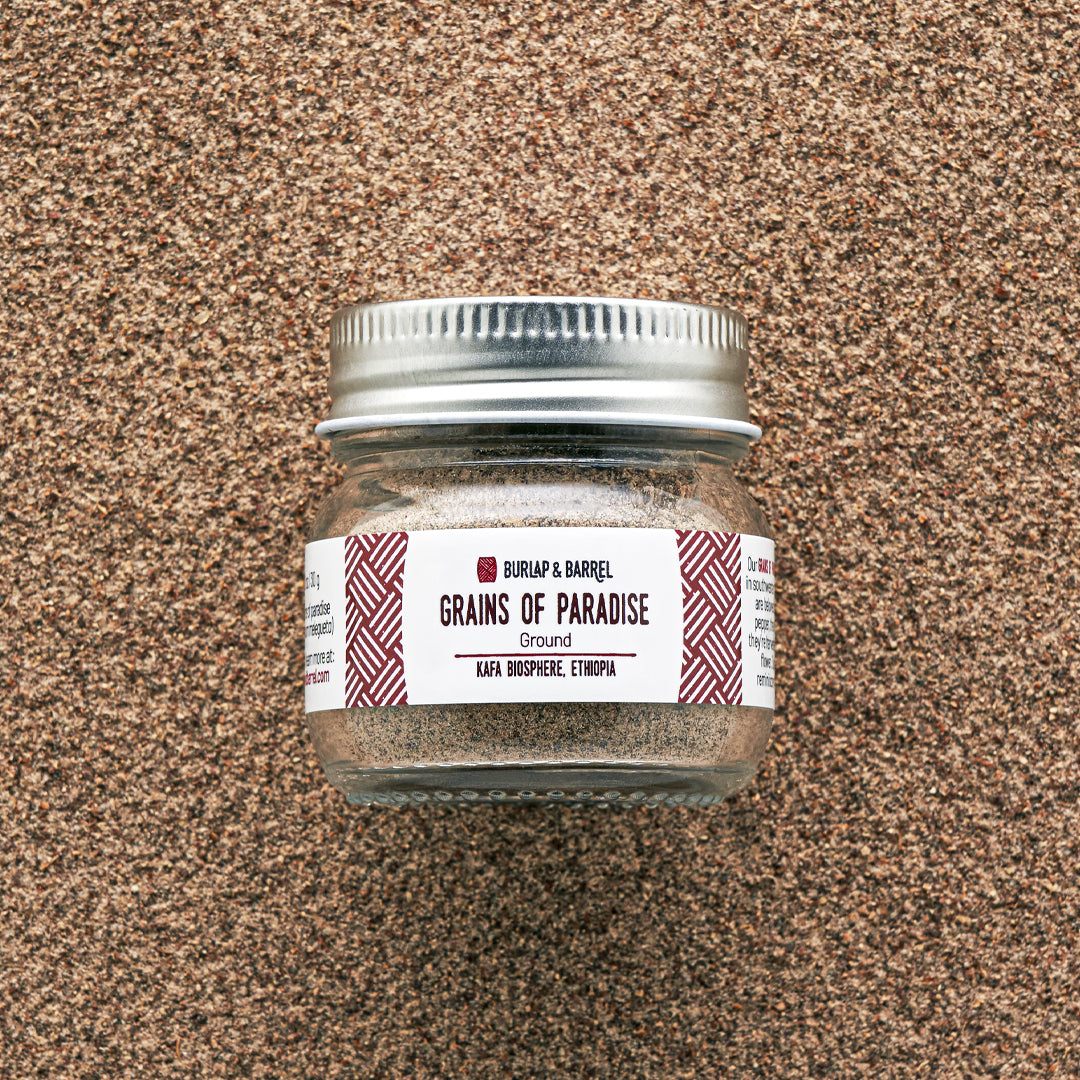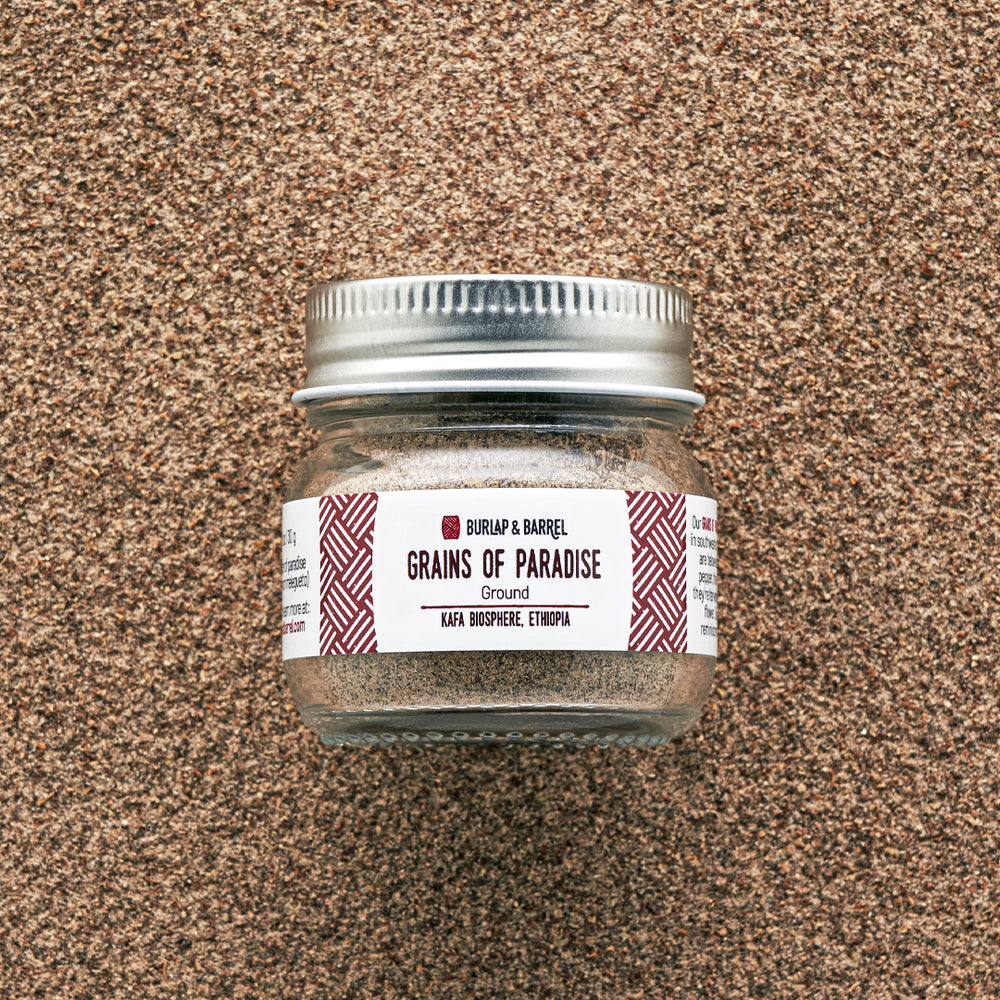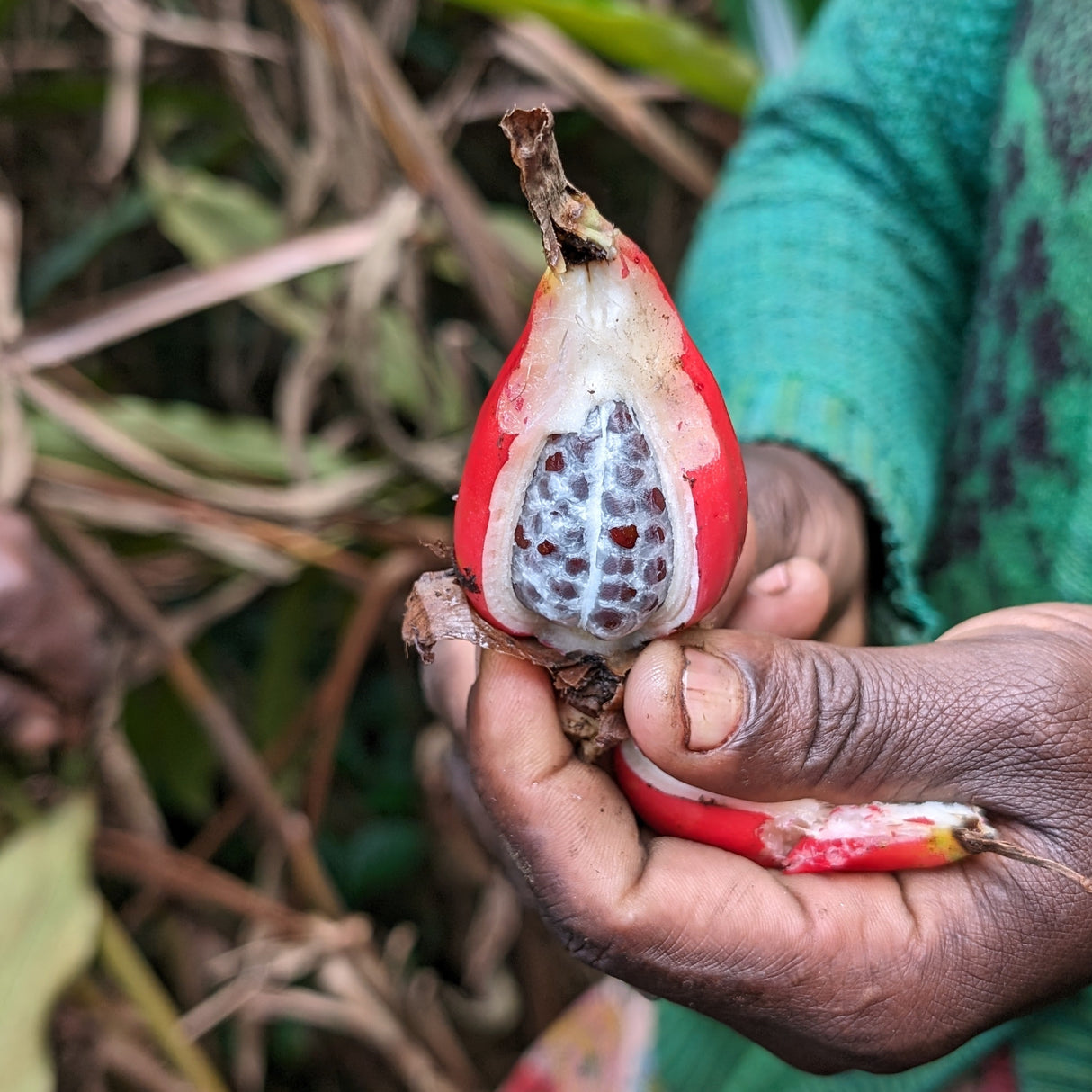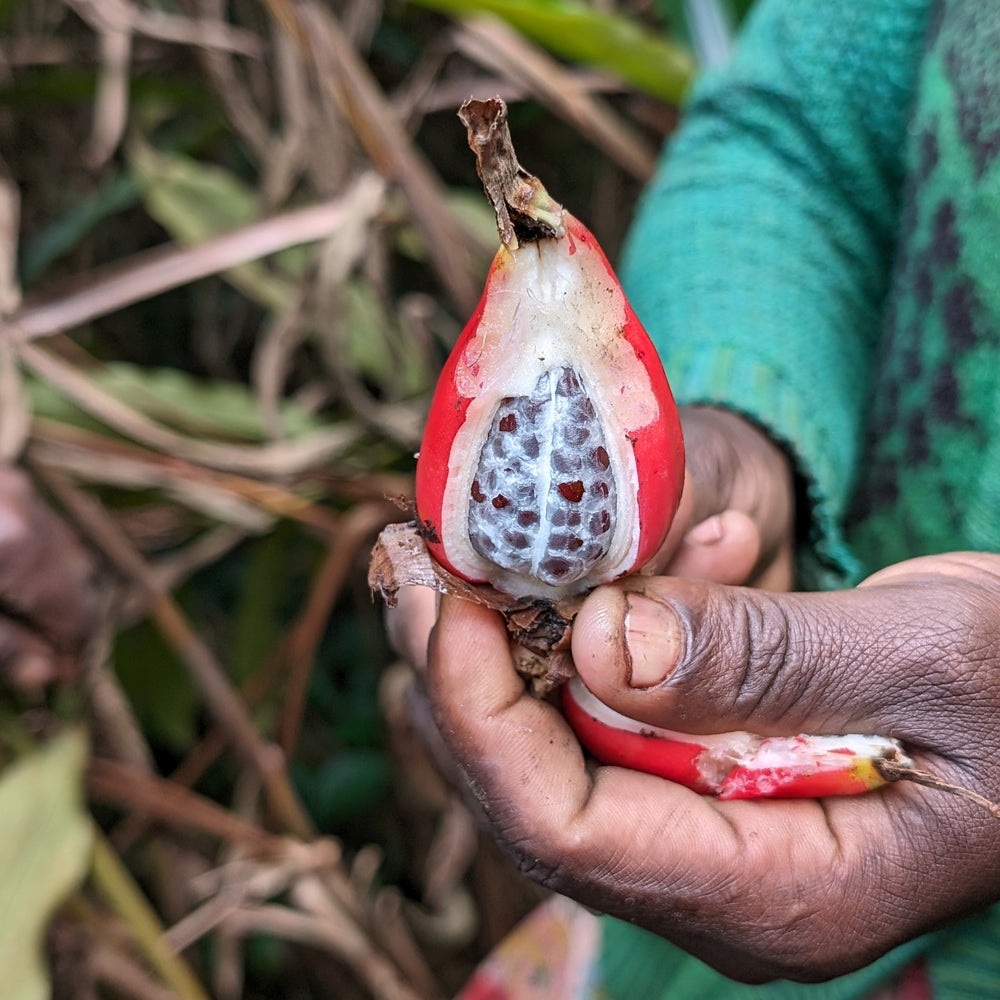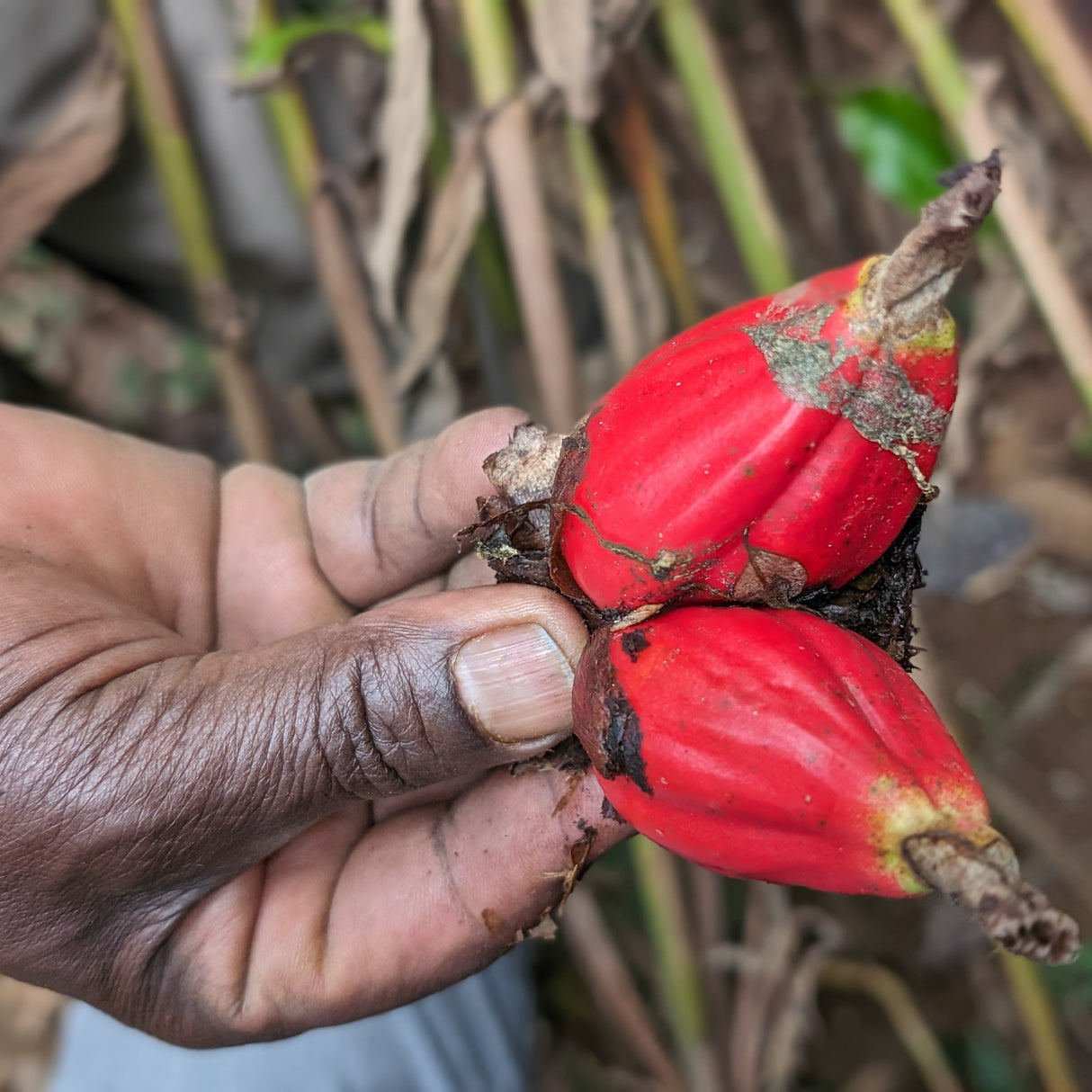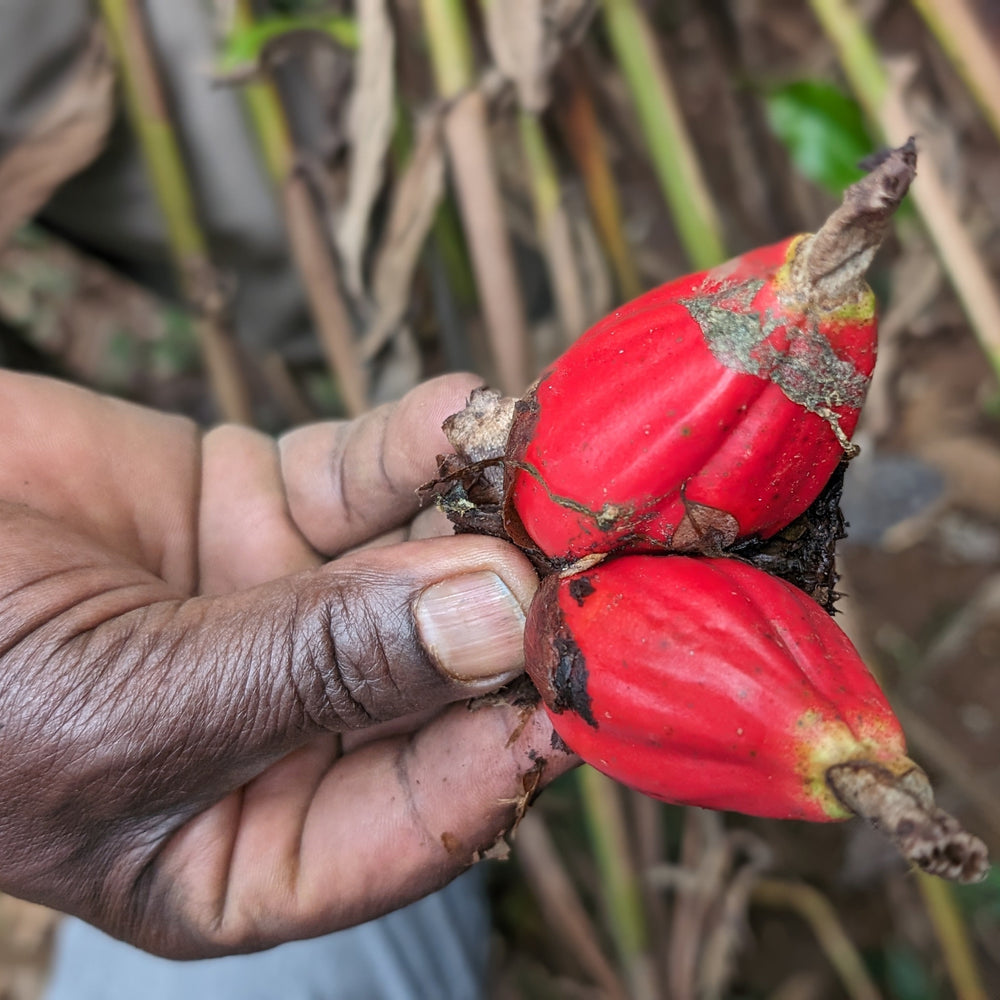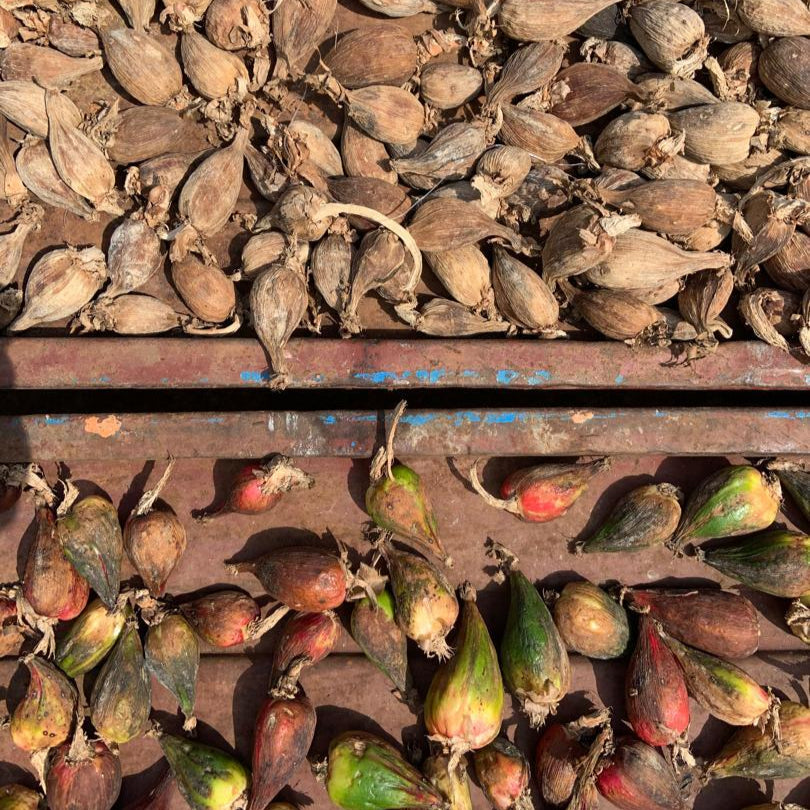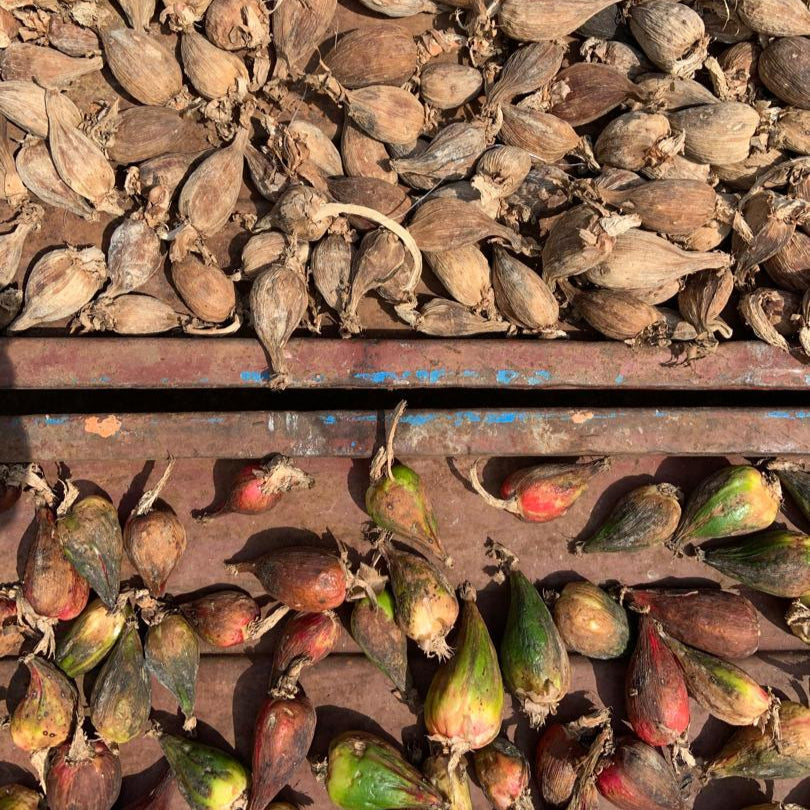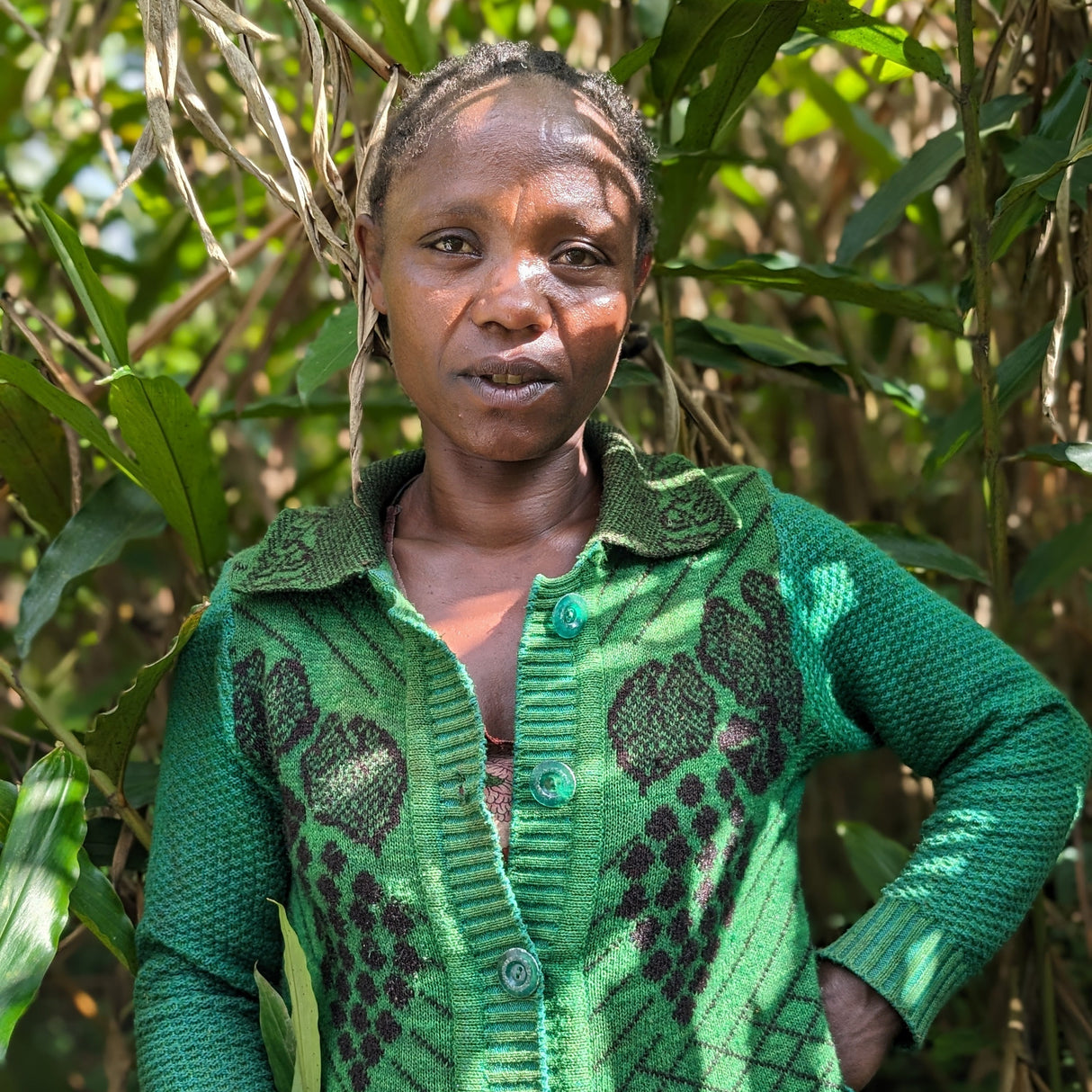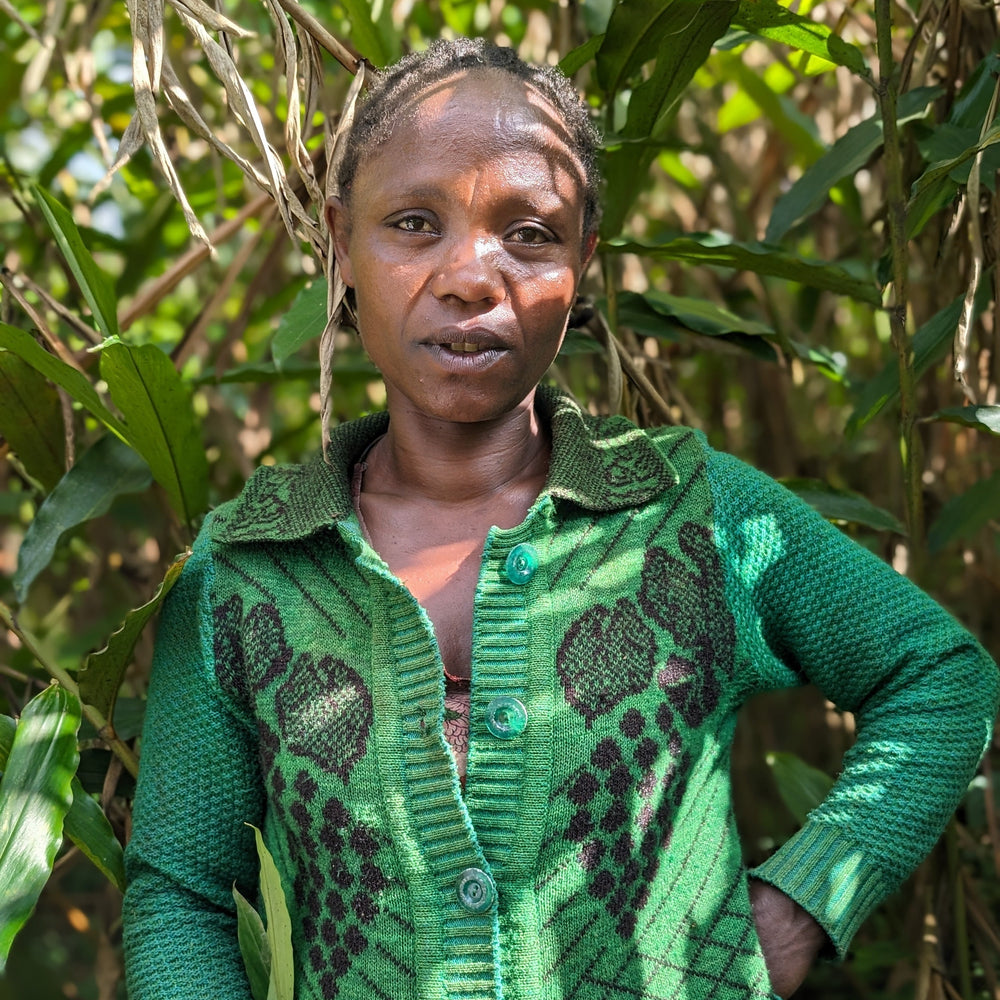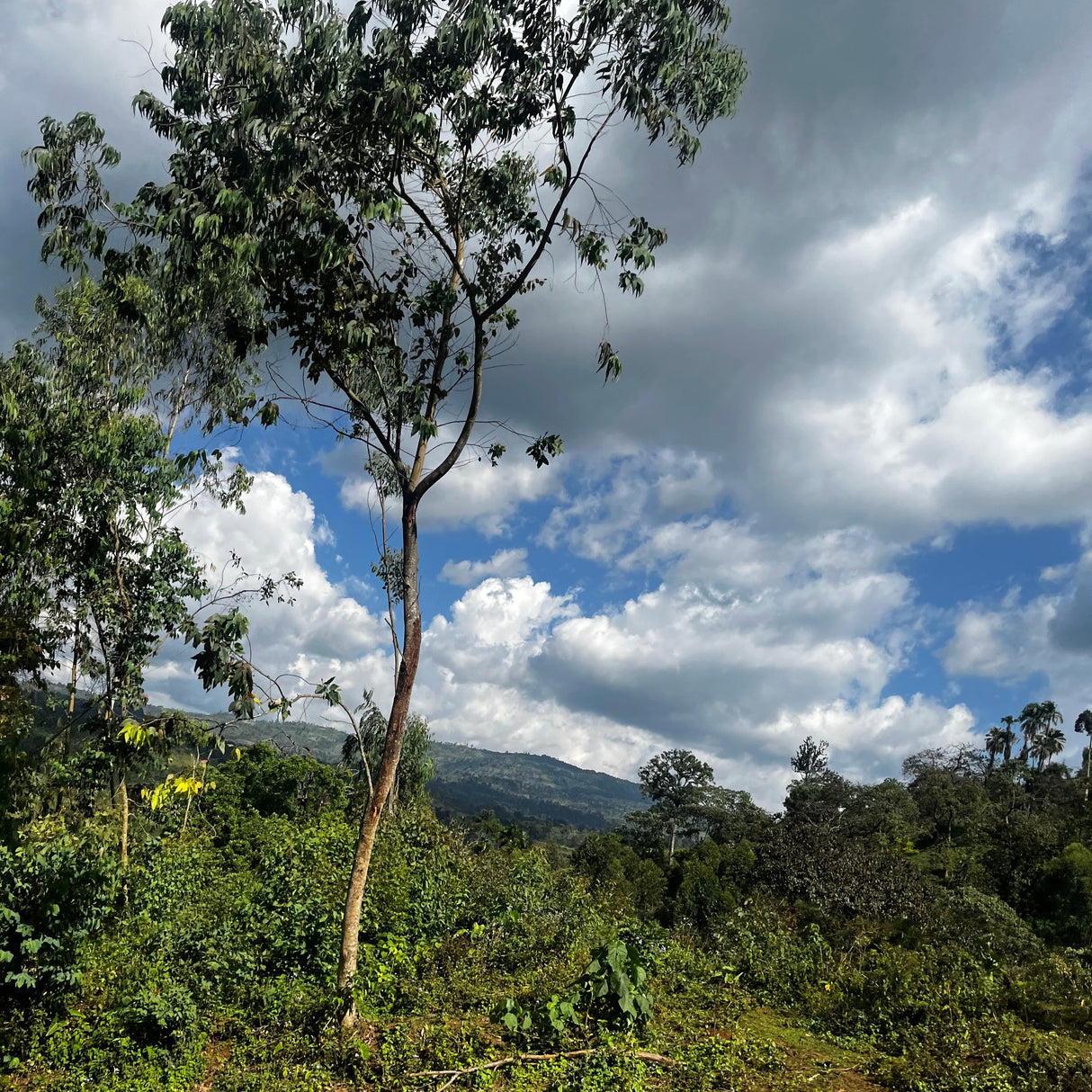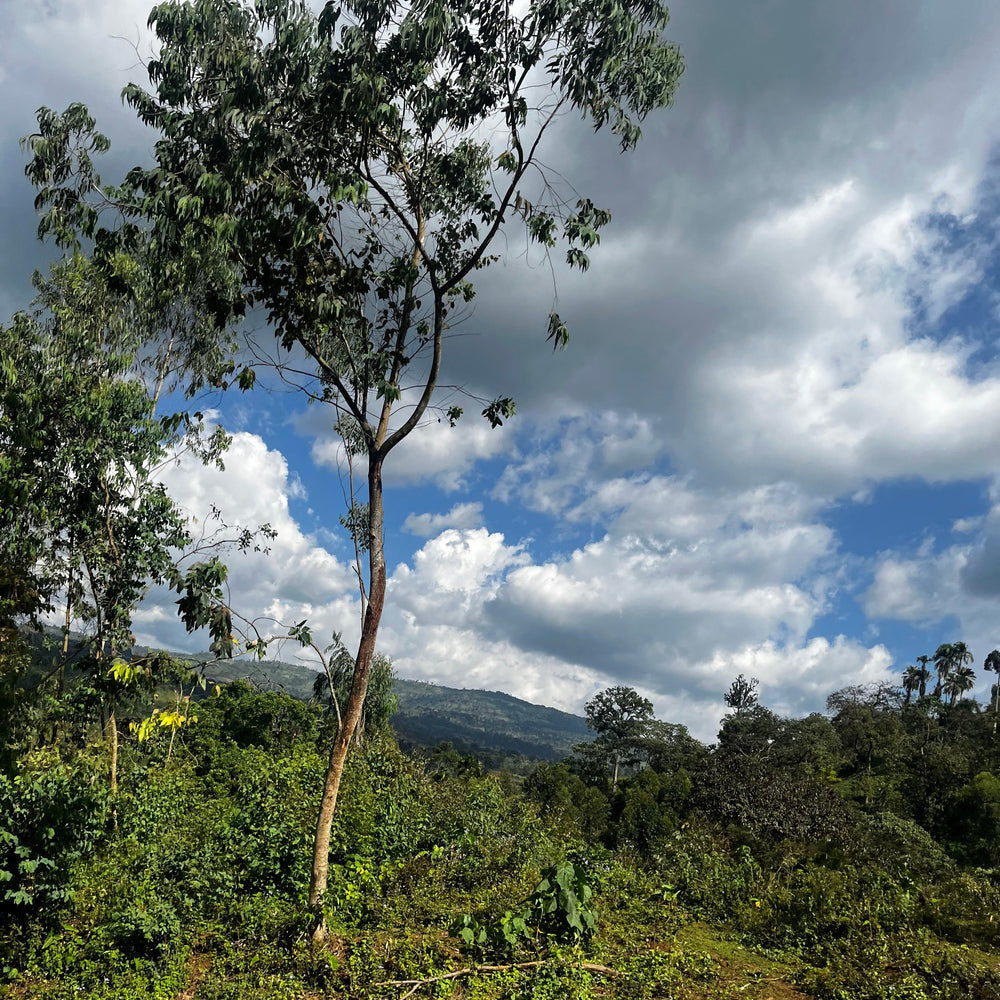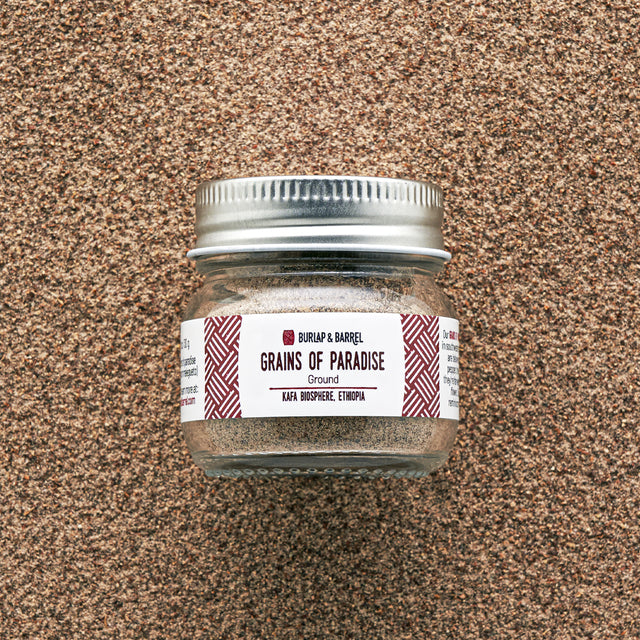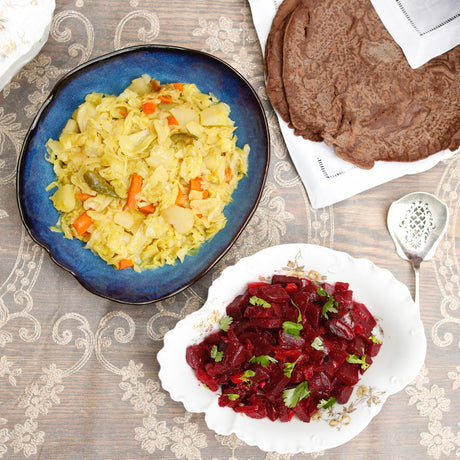
Ground Grains of Paradise
Complex and aromatic, floral and citrusy, use in place of black pepper.
Ground Grains of Paradise - 1.0 oz glass jar is backordered and will ship as soon as it is back in stock.
Why Burlap & Barrel?
Single origin spices sourced directly from small farms
Over 12,000 5-star reviews
Guaranteed to wow you or we'll replace
Our Grains of Paradise are grown by a cooperative of farmers, primarily women, in a biosphere in southwestern Ethiopia. These complex, aromatic seeds are beloved across Africa. Also known as melegueta pepper, they’re related to cardamom and ginger, and they’re harvested from pods on a trumpet-shaped purple flower. Sprinkle into stews and sauces for flavor reminiscent of black pepper but beautifully unique.
Farm photos credit: Chakka Origins
Highlights
Ingredients
Grains of paradise (Aframomum melegueta)
Cooking tips
- Add a pinch to rice or grains to infuse with flavor
- Use a teaspoon in banana bread or other sweet baked goods
- Blend with other savory spices to make a rub for chicken and red meat
- Brew with coffee for true Ethiopian flavor!
Recipes
Sourcing
We work with a cooperative of smallholder farmers, primarily women, to bring these grains of paradise to you. They tend the plants in Ethiopia's Kafa Biosphere, where the grains of paradise grow wild underneath coffee and fruit trees.
The plant itself is indigenous, and it helps with soil quality and regeneration. It's also good for biodiversity of the area.
Grains of paradise, called korerima in Ethiopia, are a cherished spice in Ethiopian cuisine. The ground seeds are added to brewing coffee and clarified butter, the latter of which is used to flavor almost every dish.
We traveled to visit our partner farmers in Ethiopia in 2024, and in this picture you can see Ayelech, one of the farmers who works in the cooperative. She showed us how the red fruits open up to reveal rows upon rows of little black seeds, which they will remove and dry, then grind!

